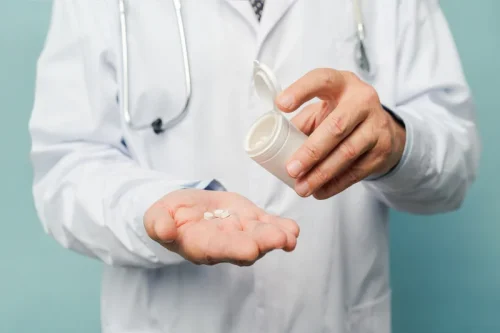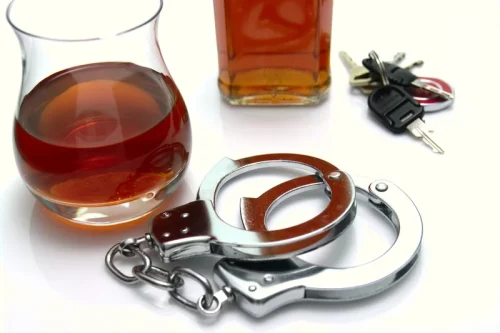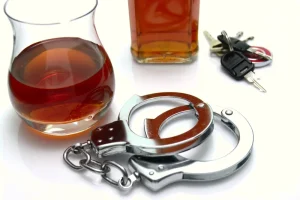Because alcohol withdrawal symptoms can sometimes be unpredictable and may escalate quickly, having an on-site medical team that can quickly intervene is the safest way to quit heavy drinking. If you suddenly quit drinking, your body can struggle to catch up. Because alcohol is a central nervous system depressant, quitting drinking can cause your body to have too much of an excitatory substance called glutamate as it tries to rebalance. This can trigger alcohol withdrawal symptoms, which can be dangerous in some cases.
- It is very important that you estimate your BASELINE ALCOHOL CONSUMPTION in terms of standard drinks in order for you to be able to set up a taper schedule.
- If you are experiencing withdrawal symptoms like tremors, anxiety, irritability, or sweating when you stop drinking, it’s a good indication that you should consider tapering off alcohol.
- It can take between two to four days for the symptoms of delirium tremens to fully manifest, and at least another three days for them to run their course.
- The effects of alcohol can vary depending on weight, gender, age and other factors.
- It’s a good idea to talk with a medical professional before you begin a taper.
- If you drink alcohol and are thinking about quitting, it is important to make sure you do so safely.
You Have a High Risk of Addiction or Complications From Drinking
Creating a structured plan including more resources and increased self-care builds a strong foundation for recovery. Taking days off within the week is a common strategy to encourage drinking less overall. “Many people still want to enjoy socializing but are mindful of wanting to average one to two drinks per day. They often try to not drink at all during the week, and allow for moderate drinking Friday through Sunday,” Dr Lee said.
- Tapering off alcohol helps some people start their recovery journeys.
- In excessive alcohol users, the glutamate system has to function at a higher level to maintain equilibrium.
- As you navigate this question, it can be helpful to think about how you typically prefer to approach change.
- For this reason, it is best to seek medical advice on whether you should taper at home or under medical observation.
How to Gradually Stop Drinking
As a general rule, if you’ve been drinking an average of 10 drinks or more a day every day for more than a couple of weeks, you will need to taper. If you’ve been binge drinking 15-20+ drinks a day for 2-3 days, you will need to taper. The numbers may be less for women, individuals with smaller bodies, and people who are underweight.
State Rehab Guides
Additionally, the post-detox treatment resources available at a professional treatment center can ease the transition to sober living and give you the tools you need to stay sober long-term. A couple of different strategies for tapering alcohol exist. These include direct tapers, where you regularly decrease the amount of alcohol you consume, and substitution tapers, where you replace alcohol with another substance. These strategies work in different ways to help you quit drinking, and one may be more appropriate for you based on your needs. Tapering off alcohol can be a reasonable strategy for anyone who desires to stop drinking.
Can You Stop Drinking Alcohol Cold Turkey?
For some drinkers, cutting down on the amount of alcohol they drink simply does not work. They may cut back for a short period of time, but soon find themselves back to drinking at their usual level. This is especially true of heavy drinkers who are surrounded by the triggers that encourage drinking and lack the support needed to encourage change.
Someone will slowly diminish the amount they drink with the intention of avoiding the symptoms of alcohol withdrawal completely and will hopefully be able to avoid a relapse as well. As many as 71% of people who go through alcohol detox experience symptoms of alcohol withdrawal. Alcohol withdrawal can range from uncomfortable to life-threatening, so anyone considering stopping alcohol should speak with a medical professional to determine which method is best for them. Withdrawal symptoms may begin within a few hours after the last drink and may last up to 48 to 72 hours. Psychological alcohol withdrawal may continue long after the physical symptoms subside. In fact, many in recovery report having psychological cravings years after they stopped drinking.
If you must get drunk during your taper, do yourself a favor and just get buzzed, not completely trashed. You may need to do a slower taper than someone else who was drinking the same amount as you. Remember, you can always slow your taper, drink more alcohol, or seek medical help if needed. The idea is to religiously take this like medicine for the next week or two. These can indicate a life threatening condition called delirium tremens. It’s important to seek urgent medical care if you experience any of these symptoms.
Withdrawal Effects
For many people, tapering alone is insufficient to help heal their addiction. For people who moderately consume alcohol, tapering off may be a good option. However, quitting cold turkey or tapering is not advisable for people with an AUD. Tapering is also a strategy used by people with a substance or alcohol use disorder (AUD). However, improper tapering could lead to relapse, overdose, and severe health consequences.
Check your state’s regulations if this is a concern to you. There are a range of symptoms you can experience when you stop drinking. Tapering can help minimize these symptoms, but you might still experience some of them while your body adjusts to the lack of alcohol. You can also get help by reaching out to a professional rehab facility directly, like The Recovery Village. We can leverage our resources and team to help you reduce and eventually end your alcohol use. Around that same Sunday night l started felling better, headache is gone and I managed to eat bananas without puking it up and sipping slow on water.
Ready to get help now?
Only people who are tapering down from very large quantities of alcohol such as a liter of vodka per day will need sober house to start drinking in the morning in order to taper. If you are tapering from smaller quantities and feel no withdrawal symptoms until afternoon or evening then you can wait until then to consume your taper beers. Remember that you are not drinking for pleasure–you are drinking medicine–so only drink what is needed. If your BASELINE ALCOHOL CONSUMPTION is less than 20 drinks per day then we recommend reducing consumption by two standard drinks per day.
Below I share some key information so you can determine if weaning off alcohol is right for you. Just as what is a useful method for one person may not be for another, what is a safe method for someone may not be for someone else. This is why it is essential to determine your method of tapering and your tapering schedule with the supervision of a medical professional experienced in an alcohol addiction recovery treatment. Chronic and excessive alcohol use disrupts the brain’s neurotransmitters. Alcohol will increase the effect of gamma amino butyric acid (GABA) – the neurotransmitter in the central nervous system that creates feelings of peace and relaxation.





.jpg)
.jpg)